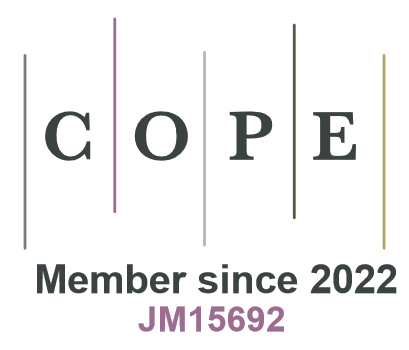Simple approach to bacterial genomes comparison based on Average Nucleotide Identity (ANI) using fastANI and ANIclustermap
DOI:
https://doi.org/10.18778/1730-2366.18.10Słowa kluczowe:
bacterial genomes comparison, bacterial phylogeny, Average Nucleotide Identity (ANI), fastANI, ANIclustermapAbstrakt
The Average Nucleotide Identity (ANI) was proposed as a standard for taxonomic affiliation of newly sequenced bacterial genomes. However, usage of ANI value as a means of strains phenotypic diversity offers a relatively easy way for studding bacterial phylogeny. Here we present a simple approach to bacterial genomes comparison based on ANI using fastANI and ANIclustermap. Both programs are available as an open-source tools and can be run using simple command lines. We present protocol for programs installation as a conda packages, that facilitate it utilization. Further, we explain how to prepare commands to perform the analysis. We believed our work could be useful for young scientist that begin their experience with bioinformatics.
Pobrania
Bibliografia
Arahal, D.R. 2014. Whole-genome analyses: Average nucleotide identity. [In:] Methods in Microbiology, Vol. 41, pp. 103–122.
Google Scholar
Buermans, H.P.J., den Dunnen, J.T. 2014. Next generation sequencing technology: Advances and applications. Biochimica et Biophysica Acta – Molecular Basis of Disease, 1842(10), 1932–1941.
Google Scholar
Deurenberg, R H., Bathoorn, E., Chlebowicz, M.A., Couto, N., Ferdous, M., García-Cobos, S., Kooistra-Smid, A.M. D., Raangs, E.C., Rosema, S., Veloo, A.C. M., Zhou, K., Friedrich, A.W., Rossen, J.W.A. 2017. Application of next generation sequencing in clinical microbiology and infection prevention. Journal of Biotechnology, 243, 16–24.
Google Scholar
Edwards, D.J., Holt, K.E. 2013. Beginner’s guide to comparative bacterial genome analysis using next-generation sequence data. Microbial Informatics and Experimentation, 3(1), 2.
Google Scholar
Figueras, M.J., Beaz-Hidalgo, R., Hossain, M.J., Liles, M.R. 2014. Taxonomic affiliation of new genomes should be verified using Average Nucleotide Identity and Multilocus Phylogenetic Analysis. Genome Announcements, 2(6), e00927-14-e00927-14.
Google Scholar
Gmiter, D., Nawrot, S., Pacak, I., Zegadło, K., Kaca, W. 2021. Towards a better understanding of the bacterial pan-genome. Acta Universitatis Lodziensis. Folia Biologica et Oecologica, 17, 84–96.
Google Scholar
Goris, J., Konstantinidis, K.T., Klappenbach, J.A., Coenye, T., Vandamme, P., Tiedje, J.M. 2007. DNA-DNA hybridization values and their relationship to whole-genome sequence similarities. International Journal of Systematic and Evolutionary Microbiology, 57(1), 81–91.
Google Scholar
Hodkinson, B.P., Grice, E.A. 2015. Next-Generation Sequencing: A Review of technologies and tools for wound microbiome research. Advances in Wound Care, 4(1), 50–58.
Google Scholar
Jain, C., Rodriguez-R, L.M., Phillippy, A.M., Konstantinidis, K.T., Aluru, S. 2018. High throughput ANI analysis of 90K prokaryotic genomes reveals clear species boundaries. Nature Communications, 9(1), 1–8.
Google Scholar
Kobras, C.M., Fenton, A.K., Sheppard, S.K. 2021. Next-generation microbiology: from comparative genomics to gene function. In Genome Biology (Vol. 22, Issue 1). BioMed Central Ltd.
Google Scholar
DOI: https://doi.org/10.1186/s13059-021-02344-9
Pobrania
Opublikowane
Jak cytować
Numer
Dział
Licencja

Utwór dostępny jest na licencji Creative Commons Uznanie autorstwa – Użycie niekomercyjne – Bez utworów zależnych 4.0 Międzynarodowe.
Funding data
-
Narodowym Centrum Nauki
Grant numbers 2019/32/T/NZ1/00515 (D.G.)








